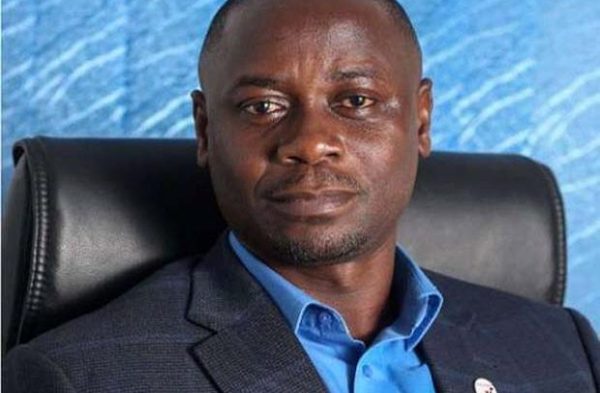IMF extension will boost investor confidence – Economist
- Posted on
- Comment
 Dr. Eric Osei-Assibey of the University of Ghana has lauded government for seeking extension of the three-year Extended Credit Facility (ECF) programme with the IMF, saying, the decision will boost investor confidence in the economy.
Dr. Eric Osei-Assibey of the University of Ghana has lauded government for seeking extension of the three-year Extended Credit Facility (ECF) programme with the IMF, saying, the decision will boost investor confidence in the economy.
Government last week reached an agreement with the IMF to extend the US$918 million ECF programme for another year despite previous hesitations to do.
Commenting on the development, Dr. Osei-Assibey said it was necessary and economically prudent for government to take a U-turn on its previous stance, considering, some investors were waiting for government’s decision on the programme before they invest in the economy.
“The development partners, potential investors, and credit rating agencies etc. were all waiting to see how this new government will treat the IMF programme, and so anything on the contrary would have really brought this country down. So, I am happy that the two parties have sat down to extend this for another year to allow the new government to take time to shape this economy and to engender the confidence and credibility that economy needs.
The extension will boost confidence in the economy because many investors were waiting to see how government was going to treat the IMF. Businesses are much more confident in an economy when IMF is around, particularly when you are in such a crisis and when things have not gone very well in the past. And so potential investors and those that have already invested in our bonds were all looking at what government was going to do with the IMF programme,” he said.
Dr. Osei-Assibey maintains that it would have been a terrible mistake for government to have abandoned the programme or ended it at the end of the three-year period considering that the macroeconomy has not been in good shape over the past few years.
“I have said time and again that it will be a self-inflicted measure to go and truncate the programme when it has not really lived up to its billing. And if you look at the programme’s target, there was no way Ghana government could end the programme by end of 2018, it wouldn’t have made sense looking at all the efforts that had been put in place. We are all looking at the same thing—macroeconomic stability—and so whatever that is possible to do to achieve this should be embraced,” he said.
After approving the programme extension, the Fund cited the urgent measures needed to address revenue shortfalls witnessed in the first half of the year, while reiterating expenditure control measures to contain current spending and prevent the recurrence of domestic arrears accumulation.
The Fund also welcomed the wide-ranging reforms in revenue administration and public financial management, noting that, these will be essential to make consolidation gains sustainable over the medium term and create fiscal space for priority spending programmes.
In relation to this, Dr. Osei-Assibey is urging government to take advantage of the breathing space the Fund has provided and institute control measures to ensure that the macroeconomy is stable at the end of the period, also adding that, government will have no excuse to fail.
“For now, government will not have much excuse at the end of the programme year to say that it inherited a bad economy or it didn’t have time to implement the policy so it has to do everything possible to ensure that the programme becomes a success.
It is in our own interest that we do everything possible to ensure that the macroeconomy is stable, debt levels have come down and all the institutions that are supposed to be strengthened are strengthened and these would help the economy very well. Otherwise, anything other than that could derail our progress and investors will not be interested to bring their money,” he said.
-thebftonline







 (Selorm) |
(Selorm) |  (Nana Kwesi)
(Nana Kwesi)